
Lifting weights will raise blood pressure, but there are exercises in particular that will really put your blood pressure through the roof.
Normal blood pressure is under 120/80. It’s not surprising that a very fit person with a clean diet has a resting blood pressure of around 100/60.
Any kind of resistance training will raise your blood pressure. Blood pressure can soar to 345/245 during very heavy lifts.
This was observed in a study (Journal of Hypertension Supplement, 1989).
The highest blood pressure increases during this study were caused by squats. Single-arm curls caused the lowest rises.
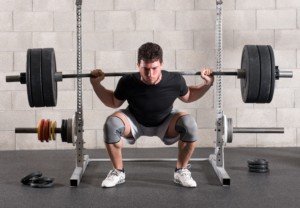
The back squat; raised blood pressure the most. Shutterstock/Photology1971
The report’s abstract does not list all the exercises that were monitored.
This will make one wonder if the deadlift and rack pull were part of this study, because these moves allow you to lift a lot more weight than does the squat.
However, we can definitely conclude that heavy deadlifts and heavy rack pulls will soar blood pressure — based on the premise that the back squat does.
All three exercises involve a barbell and mechanics that allow the body to move a LOT of weight.
Below are the exercises that allow the most amount of weight to be moved.
• Back squat
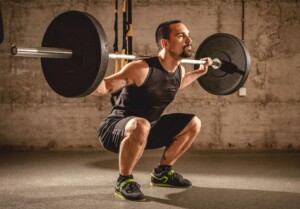
Shutterstock/MilanMarkovic78
• Front squat
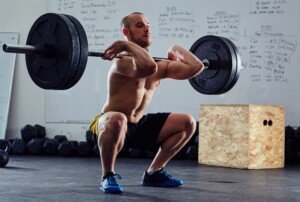
Shutterstock/baranq
• Deadlift

Freepik.com
• Rack pull
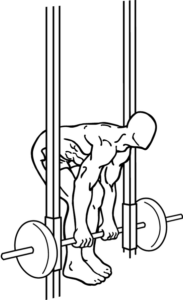
Everkinetic, Creative Commons
• Olympic style lifts (e.g., clean & jerk)

Shutterstock/Microgen
• Bench press and leg press
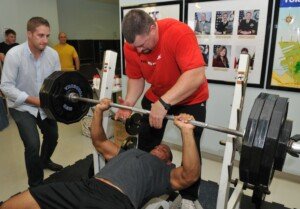
Additional Factors Influence Blood Pressure
• Length of static holds
• Length of the set (e.g., 3 RM vs. 6 RM).
Baseline blood pressure influences how high BP gets when doing any lifting moves.
So if your baseline tends to be 90-something over 55 to 60, then when you deadlift a one RM, it won’t skyrocket as high as it would if your baseline were in the 120/70 range.
Make sure you get that: The BP will jump AS MUCH during a super heavy lift – whether your baseline is very low or average, but the final number won’t be as high if your baseline is very low.
In short, what gets tacked on during the lift is the same, but if it’s getting tacked onto a lower baseline BP, then the final number won’t be as high as it would if your baseline were higher.
Never hold your breath when lifting. Never. “This causes the intracranial, middle ear and chest pressures to go up,” says Dr. Beatty.
For big lifts with mega weight, this can put the athlete at risk for an intracerebral hemorrhage, especially if other risk factors are present such as a pre-existing brain aneurysm (which usually doesn’t cause symptoms and can exist without the person ever knowing).
Exhale on the lift and inhale on the release.
Though blood pressure will spike dramatically during heavy lifts, the long-term effect of weightlifting is a lower baseline BP.








































